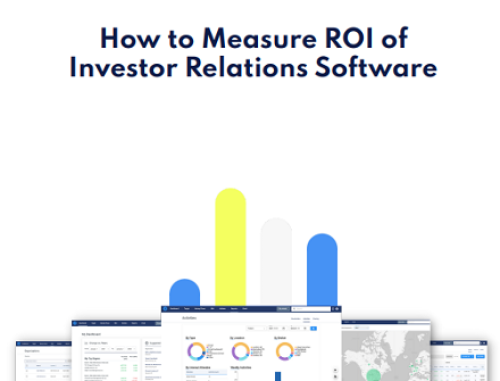Investors have not suddenly become environmental activists, but they are increasingly seeing links between ESG and conventional investor concerns about risk, cash flow and hedging, as well as their desire to back innovative new industries and companies.
If some of your company’s investors fall into this category, then it makes sense to provide the ESG data they want on your corporate website. In common with financial data, ESG information should be well signposted from the investor section, effectively organized and prioritized for investors’ needs and – perhaps most importantly – presented in the context of the company’s long-term strategy.
As part of the 2018 Bowen Craggs Index of Online Excellence, released last month, we identify the world’s best companies for online investor relations and also name the companies that are best at providing non-financial information: specifically, data on ESG performance. Here are seven companies that are best in the world at providing such non-financial information to investors online.
Nestlé – Framing CSR data around goals
Swiss food and drink company Nestlé frames its extensive CSR reporting almost entirely around goals, actions and performance.
The Our performance area in the ‘Nestlé in society’ section of the firm’s global website houses a well-presented performance data summary, making good use of accordion-style menus to present a wealth of data on a single page. In the investors section, Nestlé explains how CSR is a pillar of its strategy and signposts its CSR report alongside the annual report.
Ford – Exceptionally well-presented online data
US automaker Ford houses its CSR data in a microsite, which is signposted from a sustainability area within the investors section. There is a formidable amount of data. Summary and detailed information is equally good, and all is attractively packaged.
For example, global water use shows how much individual vehicles consume on average as well as total company impact, helpfully broken down by region. Ford is also unusual among US companies for the depth of its CSR reporting. Data-based environmental reporting has been slow to emerge in North America.
BP – A good all-rounder
Large oil companies are veterans at collecting and presenting ESG information to their investors. For context, BP has a dedicated socially responsible investment section within the investors section of its website – a rich resource of presentations, speeches and links to relevant reports.
On the data side, the health, safety and environment charting tool, housed in the sustainability section, is in a class of its own. Data is provided across a range of metrics – for example, climate change, air emissions, health and safety, oil spills and water management – with sub-categories within each.
The ‘choose your own data’ pages provide an impressive number of options, going into great detail. The tool’s sophistication is on a par with the company’s long-established financial and operating data analyst feature, which allows data to be manipulated, compared and displayed in different formats.
Shell – Speaking directly to socially responsible investors
Like BP, Shell’s environmental, social and governance section is full of useful materials to help set the scene. The SRI reporting page is a helpful set of signposts to data and reports held elsewhere in Shell’s global web estate, including to information about controversial issues such as the firm’s operations in Nigeria.
Air Liquide – CSR is central to the investment case
The French chemicals group Air Liquide makes sustainability central to its online pitch to investors. For example, the key figures on the Air Liquide at a glance page within the investors section include – among financial figures – top-line data for accident frequency, ‘% of group sales related to protecting life and preserving the environment’, carbon dioxide emissions and others.
BASF – Linking sustainability to long-term performance
Air Liquide’s chemical industry peer BASF has a sustainable investments sub-section in the investor relations section, where it links sustainability to long-term performance and provides a wealth of evidence backing its claim to be sustainable and why it matters.
Volkswagen – Non-financial reporting after a crisis
The carmaker’s sustainability section leads with an explicit acknowledgement of the recent emissions scandal and there is also no attempt to downplay the crisis in the online sustainability report.
The company’s extensive non-financial reporting is designed to provide evidence to investors, and the rest of the world, that it means what it says. The data it provides is comprehensive and highly usable, although Volkswagen could do more to signpost these resources from its IR section.
Jason Sumner is a senior consultant with London-based communications consultancy Bowen Craggs










